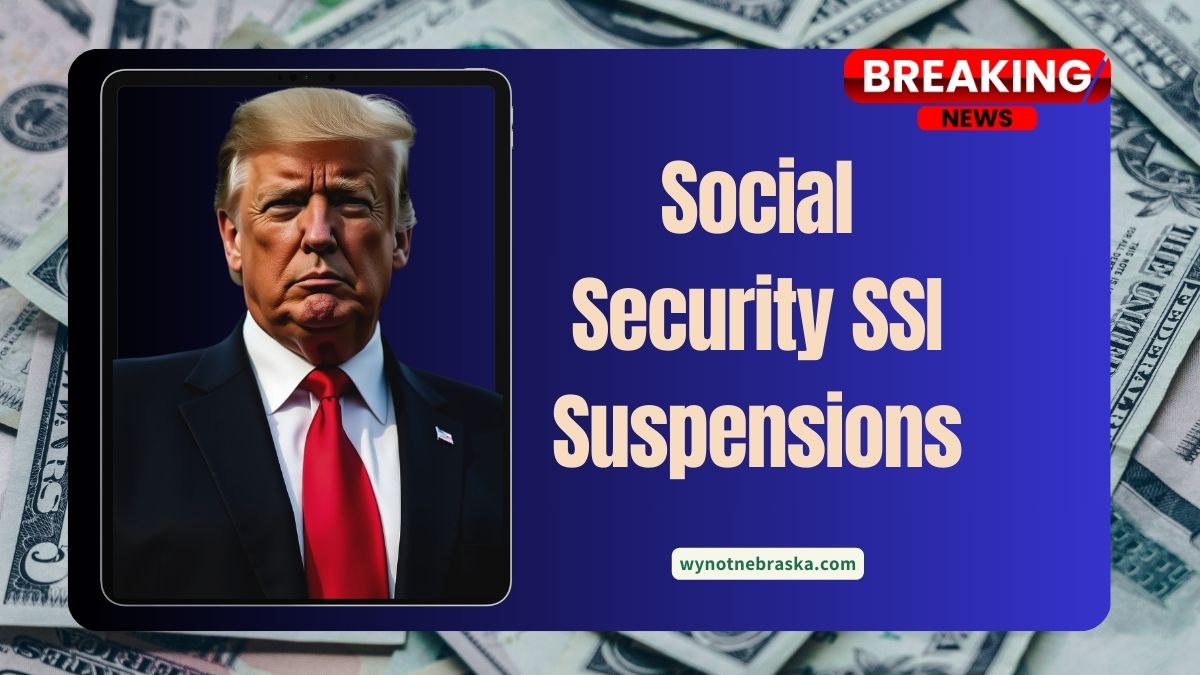Supplemental Security Income (SSI) is a federal program administered by the Social Security Administration (SSA) that provides monthly financial assistance to low-income seniors, disabled individuals, and those with limited resources.
While SSI is a crucial safety net for millions of Americans, it comes with strict eligibility requirements. If those requirements are not continuously met, your monthly SSI payments may stop—sometimes without much warning.
Understanding the most common reasons for suspension can help beneficiaries avoid costly mistakes and keep their payments flowing.
What Can Cause Your SSI Benefits to Stop?
The SSA actively monitors recipients’ eligibility and financial activity. Any change in your income, disability status, or living situation could result in your payments being paused or permanently stopped.
Here are the top three reasons your monthly SSI check may be halted:
1. Exceeding the Income or Resource Limit
SSI is a needs-based program, which means you must stay within strict income and asset limits.
| Type | Threshold |
|---|---|
| Individual Income | Approx. $1,971/month (2025 estimate) |
| Couple Income | Approx. $2,915/month (2025 estimate) |
| Resource Limit | $2,000 (individual) / $3,000 (couple) |
If your income from work, gifts, unemployment, or even state or family support pushes you above the allowed threshold, your SSI benefits may stop immediately.
Tip: Always report new income within 10 days to avoid overpayments or suspension.
2. Medical Improvement or No Longer Meeting Disability Criteria
For those receiving SSI due to disability, your condition must be medically reviewed periodically. If the SSA finds that your condition has improved, you could lose your eligibility.
- Disability reviews are scheduled every 3 to 7 years depending on your case.
- If medical evidence shows you are capable of working, your benefits may be discontinued.
Tip: Submit updated medical records and attend all required medical exams to maintain eligibility.
3. Incarceration or Confinement in a Public Institution
If you are incarcerated for more than 30 consecutive days, your SSI payments are suspended.
| Status | SSI Eligibility |
|---|---|
| Incarcerated > 30 days | SSI is suspended |
| Released from prison | SSI can be reinstated |
| In public institution | No SSI unless private payee |
Even if you are not in jail, confinement in a public facility without private funding may disqualify you from SSI.
Tip: Upon release, notify SSA promptly to begin the reinstatement process.
Can You Get SSI Payments Back After Suspension?
Yes! Most suspensions are not permanent and can be reversed once you meet eligibility criteria again.
Here’s how to get reinstated based on the reason for suspension:
| Reason Suspended | How to Reinstate |
|---|---|
| Income too high | Show proof of reduced income |
| Disability review failed | Submit updated medical evidence or appeal decision |
| Incarceration | Reapply post-release within SSA’s time window |
Always act quickly to avoid a long gap in payments and potential overpayment penalties.
The SSI program offers vital support, but staying eligible means following the rules closely. The top three reasons your monthly SSI payments may stop in 2025 include:
- Exceeding income or asset limits
- No longer meeting disability criteria
- Incarceration or institutional confinement
If your benefits are suspended, don’t panic—most situations are reversible. The key is to act fast, stay compliant, and keep your information updated with SSA. SSI is a safety net, and knowing the rules helps you keep it intact when you ne
FAQs
How do I know if my SSI is about to be stopped?
The SSA will usually send a notice by mail before suspending payments. Always read your SSA letters carefully.
Can my SSI stop without warning?
Yes, especially if income or incarceration is discovered through government databases. Always report life changes to avoid surprises.
How long does it take to reinstate SSI after suspension?
It can take weeks to a few months, depending on how quickly you submit required documentation and resolve the issue.

